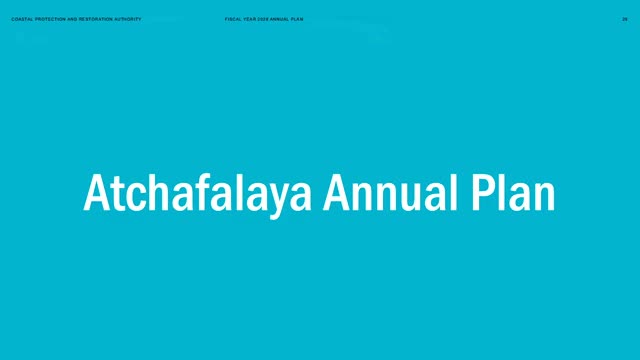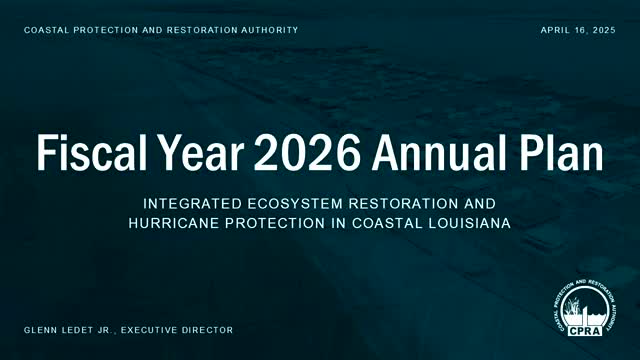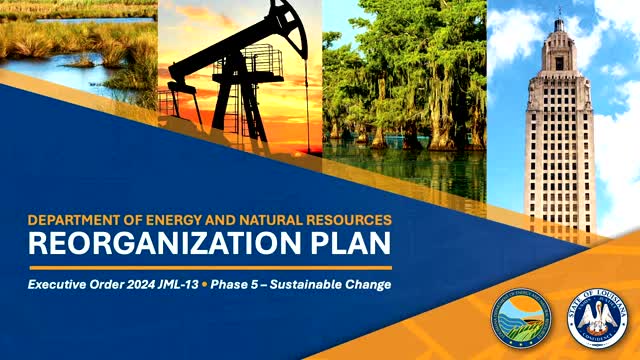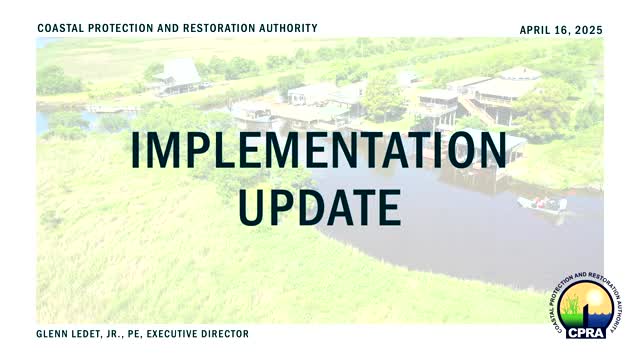Article not found
This article is no longer available. But don't worry—we've gathered other articles that discuss the same topic.

CPRA highlights Atchafalaya appendix: boat‑launch upgrades and basin master planning

CPRA board adopts $~2 billion FY26 annual plan amid public debate over Mid Barataria diversion

State ‘Drive’ reorganization plan would create Natural Resources Commission and remake energy and permitting offices

